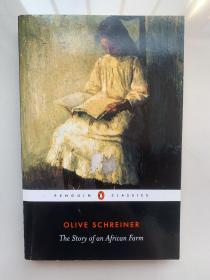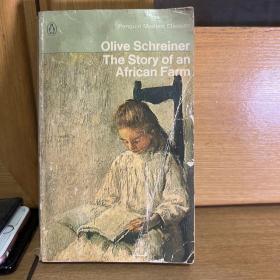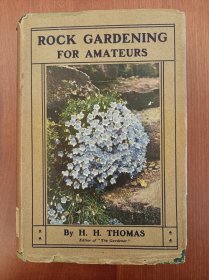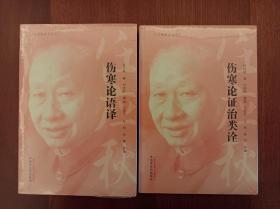
The Story of An African Farm(现货,实拍书影)
Unabridged edition, Dover 1998 edition
¥ 35 九品
仅1件
作者Olive Schreiner
出版社Dover Publications; Unabridged edition
ISBN9780486401652
出版时间1978
印刷时间1998
装帧平装
尺寸21 × 13.2 cm
页数256页
货号A22
上书时间2024-12-05
- 在售商品 暂无
- 平均发货时间 13小时
- 好评率 暂无
- 最新上架
商品详情
- 品相描述:九品
-
书脊书角及外表有些磕伤磨损,书页内干净如新,详见实拍书影。
2@A22
- 商品描述
-
Olive Schreiner 1855 to1920, South African author and feminist, b. Wittebergen Reserve, Cape Colony. After several years as a governess, she went to England in 1881, taking with her the manuscript of her famous novel, The Story of an African Farm (1883). Her later works included Dreams (1921), a collection of allegories; Women and Labour (1911); and a significant novel, unfinished, From Man to Man (1926).
In writing the first great South African novel, Olive Schreiner drew on childhood memories of life on the isolated African veld to fashion a powerful indictment of the rigid Boer and English social conventions of her day. This 1883 bestseller, published under the pseudonym Ralph Iron, was greeted by both praise and condemnation for its feminist views on women's status and on marriage, and for its unorthodox critique of dishonesty and hypocrisy in the doctrines and practices of "respectable" Christian church people.
The tale begins with three childhood playmates growing up on a sheep farm: Waldo, son of the farm's kindly and pious German overseer; Em, the stolid but kind English stepdaughter of Tant' Sannie, the farm's Boer owner; and Lyndall, Em's spirited orphan cousin. As the story follows the friends to adulthood, basic conflicts are enacted both internally and externally. Em's ardent fiancé falls in love with the beautiful but troubled Lyndall, who flouts social pressure to marry. Waldo struggles with his boundless yearning for spiritual fulfillment and for the stimulation that knowledge brings, as well as his need for warm human companionship.
Lyndall's fierce efforts to wrest from the world a life for herself, and the affects her insight and courage have on others, make a gripping tale. This eloquent portrayal of loves damaged by societal repression retains its power more than a century after its first publication. Today's readers will welcome this inexpensive edition of a literary landmark.
相关推荐
-

the story of an underground
八五品苏州
¥ 98.00
-

The Story of An African Farm
九品上海
¥ 4.00
-

The Story of an African Farm
九五品上海
¥ 88.00
-

The story of an African farm
八五品北京
¥ 40.00
-

THE STORY OF AN INVENTOR 馆藏
八五品南京
¥ 35.20
-

THE STORY OF AN AMERICAN COMMUNIST
八五品成都
¥ 60.00
-

Vu: The Story of a Magazine That Made an Era
九五品北京
¥ 380.00
-

An Extraordinary Life: The Story of a Monarch Butterfly-不平
九品长沙
¥ 35.00
-

An American Hero: The True Story of Charles a. Lindbergh
八五品南京
¥ 80.00
-

An American Hero: The True Story of Charles a. Lindbergh
九品北京
¥ 50.40
— 没有更多了 —























以下为对购买帮助不大的评价